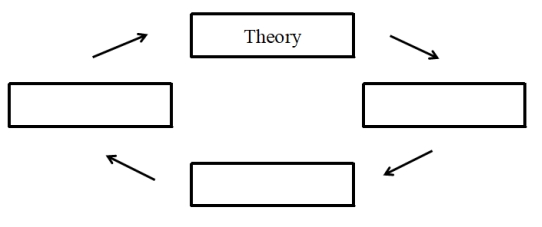Exam 2: Science and Social Research: From Theory to Data and Back
Exam 1: Introduction: Why Care About Research Methods?12 Questions
Exam 2: Science and Social Research: From Theory to Data and Back34 Questions
Exam 3: The Ethics and Politics of Research: Doing What's "Right"22 Questions
Exam 4: Research Designs: It Depends on the Question30 Questions
Exam 5: Measurement: Linking Theory to Research19 Questions
Exam 6: Sampling: Case Selection as a Basis for Inference17 Questions
Exam 7: Experiments: What Causes What?18 Questions
Exam 8: Surveys: Questioning and Sampling22 Questions
Exam 9: Field Research and In-Depth Interviews: Systematic People-Watching and Listening38 Questions
Exam 10: Existing Data Analysis: Using Data from Secondhand Sources35 Questions
Exam 11: Multiple Methods: Two or More Approaches Are Better Than One38 Questions
Exam 12: Quantitative Data Analysis: Using Statistics for Description and Inference23 Questions
Exam 13: Qualitative Data Analysis: Searching for Meaning46 Questions
Exam 14: Reading and Writing in Social Research: It's All About Communication9 Questions
Select questions type
Discoveries based on intuition or serendipity have no place in science.
(True/False)
4.9/5  (42)
(42)
In terms of the cyclical relationship between theory and data that is presented in the text, empirical pattern is to hypothesis as _______ is to _______.
(Multiple Choice)
4.8/5  (27)
(27)
Describe how Durkheim used both the deductive and inductive logics of inquiry in his study of suicide. Be sure to give specific details of the study as these relate to the key components of each logic.
(Essay)
4.7/5  (41)
(41)
When Durkheim tested psychological theories of suicide with data from official records, he used the _______ logic of inquiry; when he developed his own theory of suicide from the same data, he used the _______ logic of inquiry.
(Multiple Choice)
4.9/5  (35)
(35)
Because of the human element in science, some scholars believe that it is impossible to detect and eliminate sources of bias in scientific inquiry. Present a rebuttal to this criticism. Be sure to point out how many biases and errors are identifiable and correctable because the nature of scientific inquiry enables its own critique.
(Essay)
4.9/5  (42)
(42)
Compared to a researcher using the deductive logic of inquiry, a researcher using the inductive logic of inquiry is less likely to
(Multiple Choice)
4.9/5  (35)
(35)
The GSS misclassification of data on social isolation shows how the social sciences are less scientific than the natural sciences.
(True/False)
4.7/5  (36)
(36)
Below is an outline of a flowchart illustrating the scientific process. Fill in the boxes and then indicate whether each arrow in the diagram represents the application of deductive or inductive logic.

(Not Answered)
This question doesn't have any answer yet
Which of the following sequences best describes the deductive logic of inquiry?
(Multiple Choice)
4.9/5  (36)
(36)
According to Box 2.2 in the text, inductive arguments are either valid or invalid.
(True/False)
4.9/5  (35)
(35)
A limitation of the inductive logic of inquiry is that several theories may account for the same empirical patterns.
(True/False)
4.8/5  (39)
(39)
In formulating a hypothesis from a theory, a researcher uses deductive logic.
(True/False)
4.9/5  (36)
(36)
Showing 21 - 34 of 34
Filters
- Essay(0)
- Multiple Choice(0)
- Short Answer(0)
- True False(0)
- Matching(0)